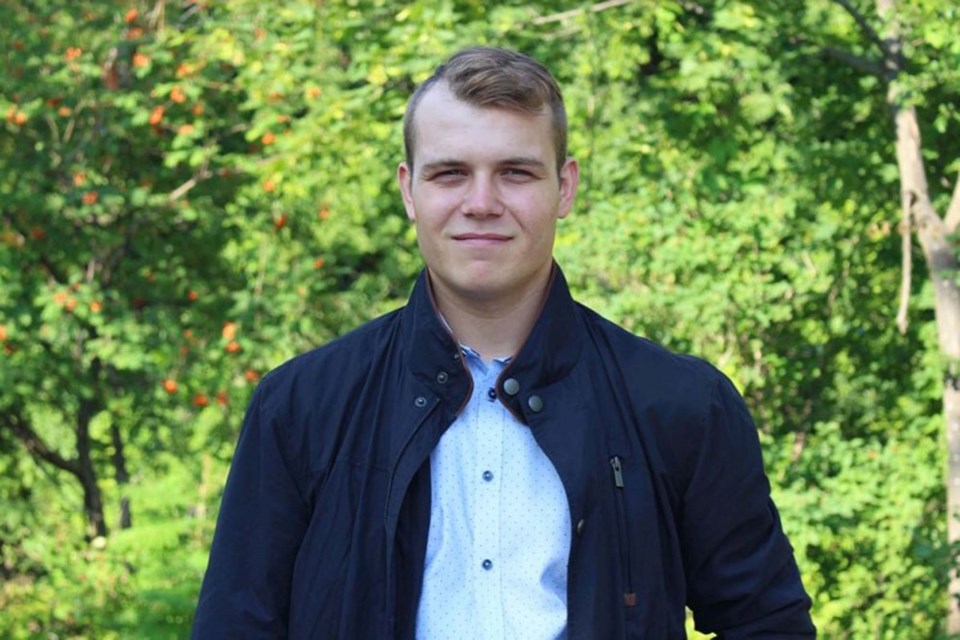July 3, 2010, was the last time anyone saw Lyle and Marie McCann. A surveillance tape from the St. Albert Superstore picked up their images as they bought food and gas for a road trip to B.C.
Their burned-out trailer was found two days later near Minnow Lake campground outside of Edson. Their bodies were never found.
Bret McCann, son of Lyle and Marie, said a bill known as McCann's law, reintroduced last week in the House of Commons by Sturgeon River-Parkland MP Dane Lloyd, is an honour to his parents.
The bill would give law enforcement the ability to use the refusal to provide the location of bodies or remains as a tool for harsher punishment or a longer ineligibility period for parole for convicted killers.
“I think it's a great idea to begin with, and I think it's very important to have a law like that for the families that this might, unfortunately, happen to in the future," said McCann. "I think it provides a good incentive for the offender to tell the truth and, you know, try to ease the pain for the families of victims.”
If passed, the law would amend the Criminal Code to give judges and parole boards another tool to impose heavier consequences, including a sentencing provision which would add the refusal to disclose the location of remains as an aggravating circumstance.
The real meat of the bill is in the parole and eligibility clauses, said Lloyd. If the judge believes, given the evidence of the case, the convicted or guilty party is withholding evidence about the location of remains, “the judge can put an order in the sentencing, increasing the period of parole ineligibility,” said Lloyd.
People are generally eligible for parole after one-third of a sentence is served. The change Lloyd is suggesting will shift that to one-half of a sentence served, or 10 years, whichever is less. It also means more years before a person can be heard by a parole board.
“We're thinking about the psychology of somebody who's in prison. They want to get out. And if they know that, by withholding this information, they're delaying their opportunity to get out by a couple of years, I think it provides leverage to the traditional system to compel people to provide important information,” Lloyd said.
Currently, parole boards are not explicitly required to consider whether a person has refused to provide information on the location of a victim's remains.
When it comes to Travis Vader, the man convicted of manslaughter in the case of Lyle and Marie McCann, this law could potentially have an impact when he comes before a parole board.
“They would have to specifically consider his refusal to provide information, so that would be helpful, but because he's already been sentenced, there won't be an opportunity for this to be put on an order,” said Lloyd.
McCann said Vader can apply for parole this year and, though he is eligible, his chances of being awarded parole, according to the Crown prosecutor, are remote.
“I hold on to that, but who knows what could happen. I think it would be a travesty if it ever happened,” he said.
McCann also said he would receive notice six months before Vader applied, and that hasn’t happened yet.
Lloyd said there have been similar laws passed in Australia and Great Britain.
Lloyd said he grieved with the McCann family along with the community and he wanted to find a way to help get justice.
Lloyd first introduced McCann’s law in March 2019. The bill was not passed before the House broke for the summer.
It’s difficult to get a private member's bill passed in Canada, Lloyd said, because of the private members' lottery system (No more than 30 private members' bills or motions are allowed on the House agenda at any given time. The order is determined by lottery.) and because there is a limited amount of time to debate bills in Parliament.
He is worried a potential election in the fall might derail the process again; however, he is confident this law would be a platform for the next election.
“Should we form government, I'm confident that this will be law,” Lloyd said.
McCann’s greatest hope is that a law like this will provide an incentive for Vader to tell the truth about his parents' murder and what he did with their bodies.
“I hope that this provides an incentive for him to … and we're able to have a funeral, in essence, for my parents and we can come to some closure on that. I mean, this has been a very, very long time and it's, it's still painful,” said McCann.




